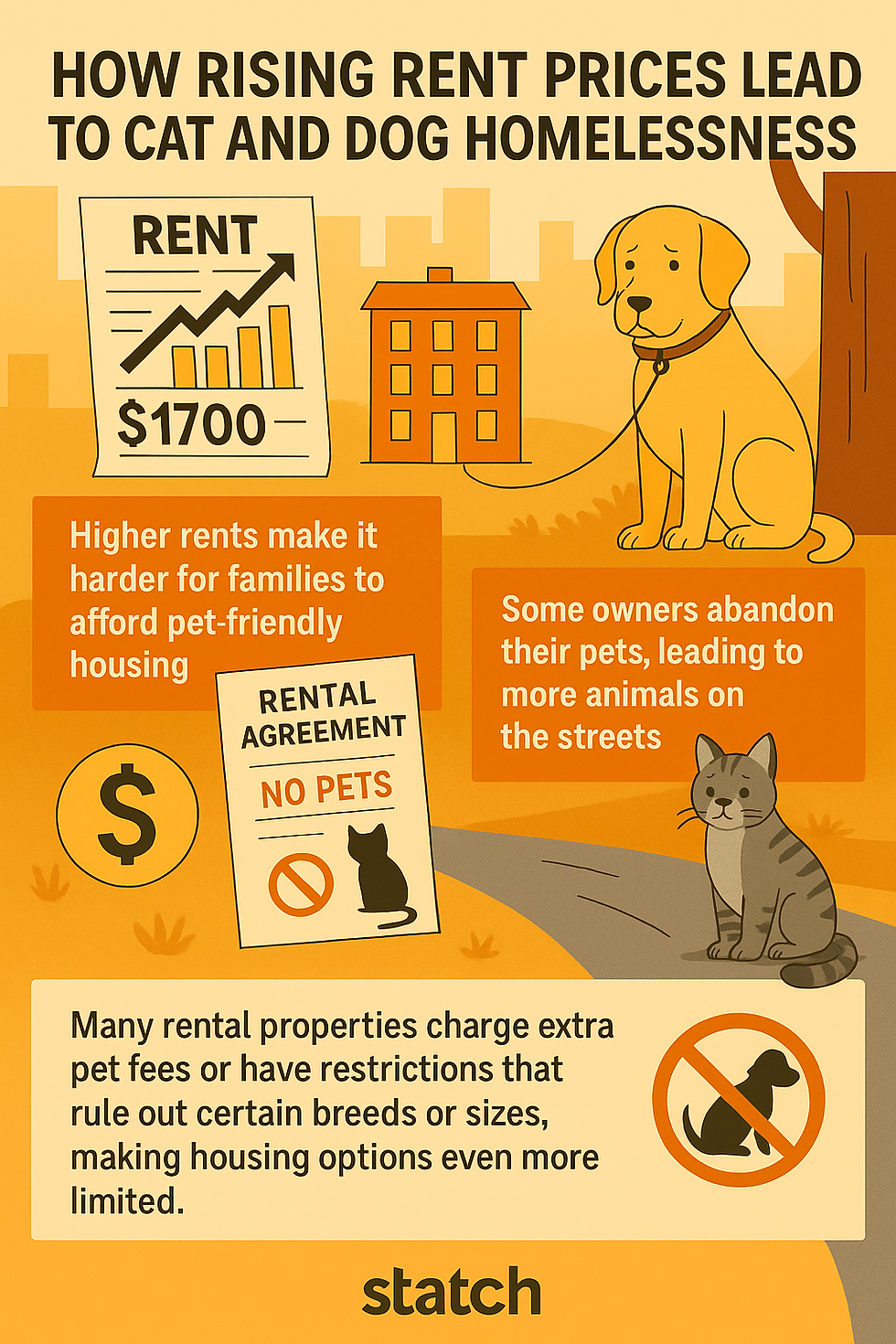Keeping Pets Home: How ESA Registration Can Prevent Pet Homelessness
- Natalia Camden

- Jul 29, 2025
- 4 min read

In the wake of rising rents, economic uncertainty, and post-pandemic upheaval, pet homelessness is at an all-time high. But there's a lifeline for some families: Emotional Support Animal (ESA) registration.
COVID, Crisis, and the Rise of Pet Abandonment
During the early months of the COVID-19 pandemic, millions of Americans turned to animals for companionship. Adoption rates soared as shelters emptied and “pandemic pets” became cherished members of households. But what began as a story of hope has taken a heartbreaking turn.
As life returned to a new normal, many people found themselves overwhelmed—financially strained, returning to in-person work, or facing eviction. Landlords imposed strict pet restrictions, and pet rent, deposits, and breed bans became overwhelming hurdles. Sadly, many families have been forced to make an impossible choice: give up their beloved animals or face housing insecurity.
At The Florida Cat and Dog Project, we’ve seen this unfold firsthand. Every week, our team finds animals dumped in parks, abandoned outside veterinary clinics, or surrendered to overwhelmed shelters. Some of these animals were once pandemic pets. Others are emotional lifelines for people who desperately need them—but who don’t know they have options.
What Is an ESA, and Can It Help?
An Emotional Support Animal (ESA) is a pet that provides comfort, companionship, and emotional stability for people living with mental health conditions such as anxiety, depression, PTSD, or panic disorders.
Unlike service animals, ESAs do not require specialized training. However, with a valid ESA letter from a licensed mental health professional, they are protected under the Fair Housing Act—which means:
Landlords must make reasonable accommodations to allow your ESA, even in “no pet” housing.
You cannot be charged pet rent or a pet deposit.
Breed and weight restrictions do not apply to ESAs.
This protection has helped thousands of people remain safely housed with their pets. But many don’t realize this option exists until it’s too late.
How to Register Your Pet as an ESA
To qualify for ESA protections, you need a signed letter from a licensed mental health professional (LMHP). This letter must state that your pet is part of your treatment plan for a diagnosed emotional or mental condition.
Here’s how to get started:
Step 1: Talk to Your Therapist or Doctor
If you’re already receiving mental health care, ask your provider whether they believe an ESA would benefit your treatment. They can issue the letter directly.
Step 2: Use a Reputable Online ESA Provider
If you don’t currently see a mental health provider, you can obtain an ESA letter through a legitimate online service that connects you to licensed professionals.
Reputable ESA providers include:
⚠️ Warning: Be cautious of scam websites offering instant letters without a real evaluation. A valid ESA letter must be issued after a telehealth or video consultation with a licensed therapist or doctor.
Who Can Benefit From an ESA?
Emotional Support Animals are especially helpful for individuals dealing with:
Anxiety and depression
PTSD and trauma-related disorders
Social isolation or loneliness
Panic attacks
Autism spectrum disorders
Chronic stress or grief
Veterans, survivors of domestic violence, disabled individuals, and caregivers often benefit deeply from the grounding presence of an ESA.
Why This Matters More Than Ever
We are in the middle of a pet abandonment crisis. According to the ASPCA, 1 in 5 households acquired a new pet during the pandemic, but many of those animals are now at risk. Shelters are full. Rescue groups are overwhelmed. And vulnerable people, seniors, renters, and low-income families, are being forced to give up their pets for reasons that may be preventable.
ESA designation is not a loophole; it’s a lifeline. It offers protection not just for the person, but for the pet who would otherwise be left behind.
Resources for Pet Owners Facing Housing Insecurity
In addition to ESA registration, here are some national and Florida-based organizations that may be able to help:
RedRover Relief: redrover.org – emergency grants to keep pets with families during crises
Pets of the Homeless: petsofthehomeless.org
The Florida Cat and Dog Project: Offers temporary rehoming support and assistance for pet owners in crisis
PAWS (Pet Assistance and Wellness Services)
Housing Equality Center of PA – Fair Housing Act advocacy
Final Thoughts
If you're struggling to keep your pet, you’re not alone—and you’re not out of options. Emotional Support Animal status can provide the legal support you need to stay together. It can mean the difference between a pet in a loving home and one on the streets.
💛 At The Florida Cat and Dog Project, we believe no one should have to choose between their home and their animal.

About Natalia Camden
Natalia is a writer, an explorer, and researcher. She studies Forensic Psychology at the Southern New Hampshire University. Natalia writes and speaks about taking risks, exploring cultural and generational diversities and how they affect our society today. She has been writing content for over 16 years. Natalia and her husband, Matthew, are enthusiastic animal lovers, and have provided a loving home for five rescued pups - Griffin, Ava, Rice, Dexter and Mary. Beyond writing, Natalia finds fulfilment in spending time with nature; from nurturing blossoming gardens to delving deep into the wilderness on her hikes. For her, nothing is more spiritually nourishing than exploring the great outdoors. "Our evolution continues despite our resistance to it – and resistance is exactly what continues to drive me forward" - Natalia Camden. Read more









Comments